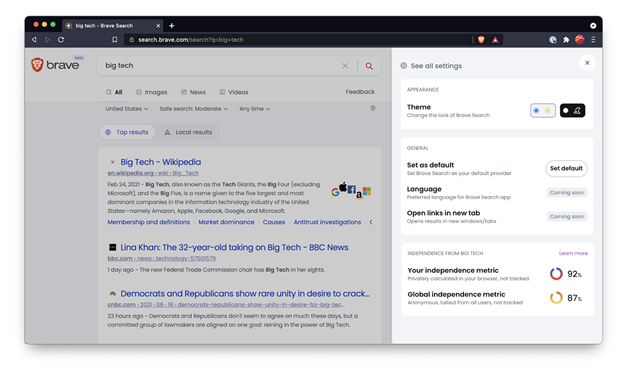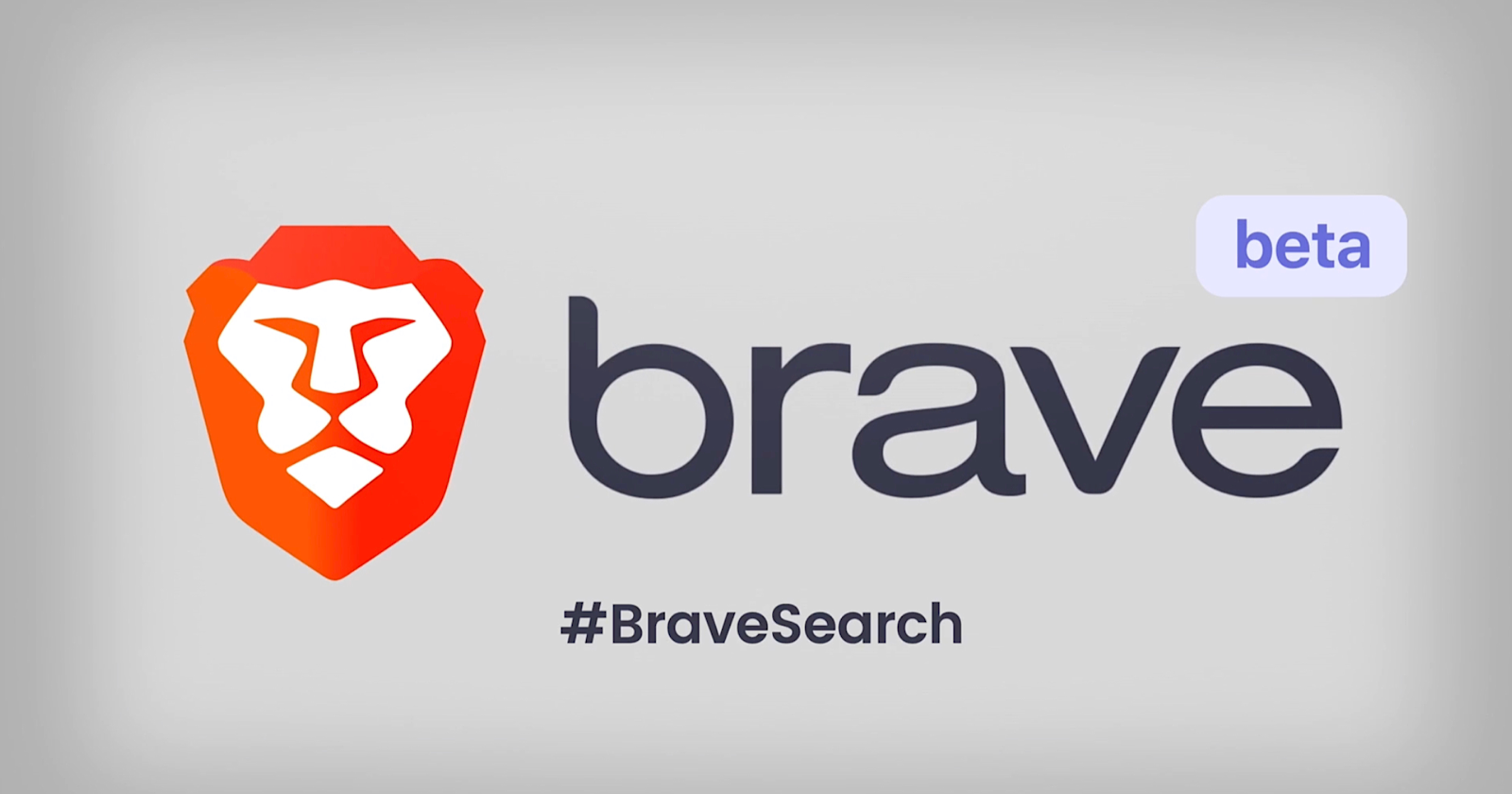Brave Search, from the company behind the Brave web browser, is now available globally in a public beta.
The new privacy-preserving search engine can be used on the mobile and desktop versions of the Brave browser, or on any other browser at search.brave.com.
Brave announced back in March that it was working on a search engine following the acquisition of Tailcat, a search engine developed by the former Cliqz team.
Those who signed up to be notified about the eventual launch were given a sneak preview of Brave Search last week. Search Engine Journal’s Roger Montti gave it a thorough test drive and reported on how it fares as a competitor to Google and DuckDuckGo.
Brave says its search engine has now been tested by over 100,000 early access users. The Brave browser recently passed 32 million monthly active users (up from 25 million last March).
Brave Search is built on top of a completely independent index, and doesn’t track users, their searches, or their clicks.
What sets Brave Search apart from competitors are the following seven principles:
- Privacy: no tracking or profiling of users.
- User-first: the user comes first, not the advertising and data industries.
- Independence: Brave has its own search index for answering common queries privately without reliance on other providers.
- Choice: soon, options for ad-free paid search and ad-supported search.
- Transparency: no secret methods or algorithms to bias results, and soon, community-curated open ranking models to ensure diversity and prevent algorithmic biases and outright censorship.
- Seamlessness: integration between the browser and search without compromising privacy, from personalization to instant results as the user types.
- Openness: Brave Search will soon be available to power other search engines.
Brave is so confident in its ability to deliver search results independently that it displays the ratio of results coming exclusively from its own index. The company calls this the industry’s first search independent metric.

Most queries are currently handled by Brave’s search index but for some features, like searching for images, Brave Search will fetch results from Microsoft Bing. This may reduce the independence metric but will not compromise user privacy.
During the early part of the beta phase Brave Search is not displaying ads. In the future there will be options for both ad-free premium search, and ad-supported free search.
Brave is currently exploring the possibility of bringing private ads to its search results.
Brendan Eich, CEO and co-founder of Brave, states on the launch of his company’s search engine:
“Brave Search is the industry’s most private search engine, as well as the only independent search engine, giving users the control and confidence they seek in alternatives to big tech.
Unlike older search engines that track and profile users, and newer search engines that are mostly a skin on older engines and don’t have their own indexes, Brave Search offers a new way to get relevant results with a community-powered index, while guaranteeing privacy.
Brave Search fills a clear void in the market today as millions of people have lost trust in the surveillance economy and actively seek solutions to be in control of their data.”
See the company’s launch video below:





![AI Overviews: We Reverse-Engineered Them So You Don't Have To [+ What You Need To Do Next]](https://www.searchenginejournal.com/wp-content/uploads/2025/04/sidebar1x-455.png)